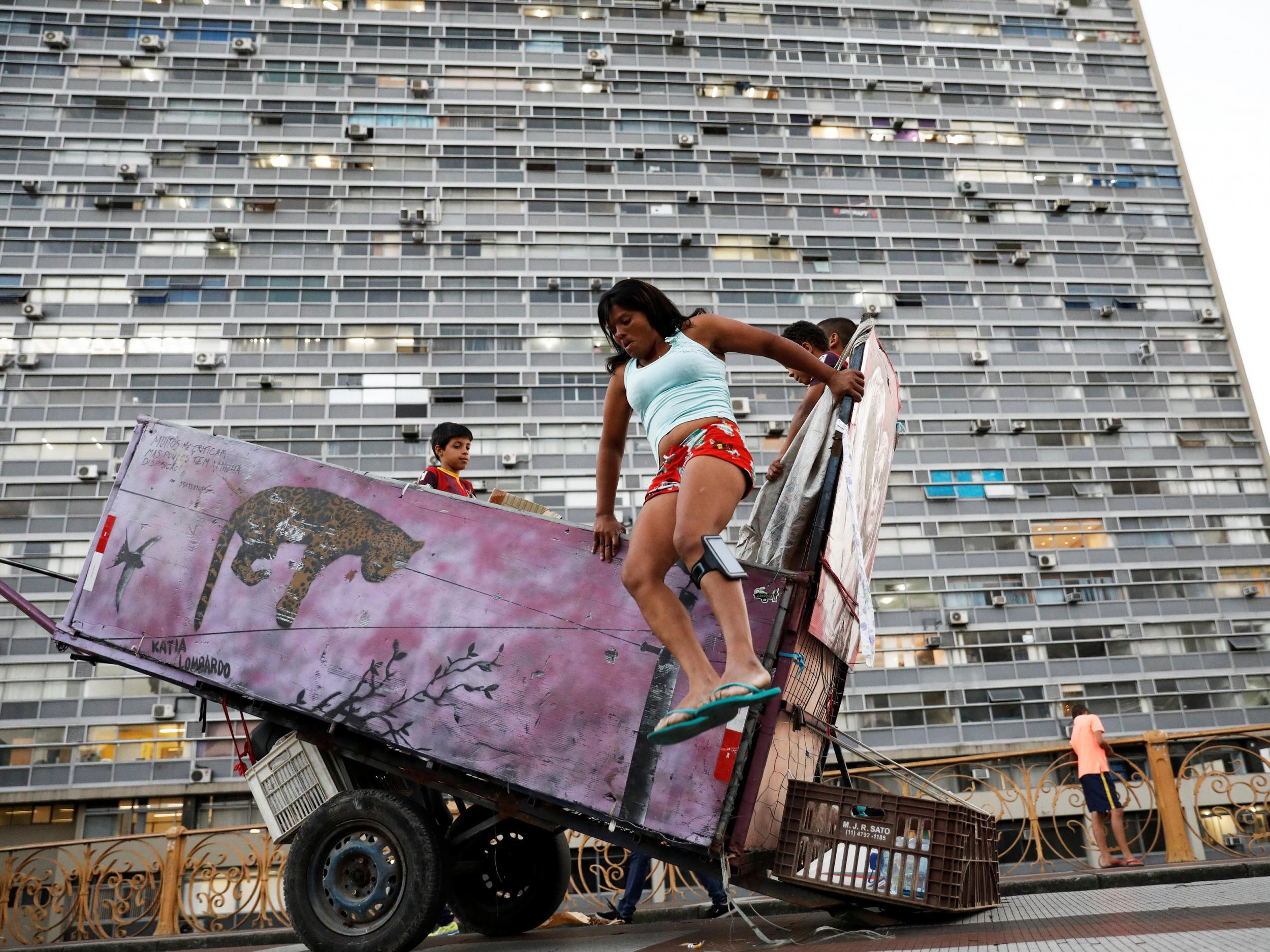Former Sao Paulo 'crackland' addict turns trash recycling into livelihood

Your support helps us to tell the story
From reproductive rights to climate change to Big Tech, The Independent is on the ground when the story is developing. Whether it's investigating the financials of Elon Musk's pro-Trump PAC or producing our latest documentary, 'The A Word', which shines a light on the American women fighting for reproductive rights, we know how important it is to parse out the facts from the messaging.
At such a critical moment in US history, we need reporters on the ground. Your donation allows us to keep sending journalists to speak to both sides of the story.
The Independent is trusted by Americans across the entire political spectrum. And unlike many other quality news outlets, we choose not to lock Americans out of our reporting and analysis with paywalls. We believe quality journalism should be available to everyone, paid for by those who can afford it.
Your support makes all the difference.Fabiana Silva called the streets of São Paulo home for 16 years as one of hundreds of people trapped in ''cracolandia'', the open-air drugs market in South America’s biggest city.
Now the street has become a livelihood for Silva, who has kicked an addiction to crack cocaine and moved into an informal two-story dwelling in a nearby slum. Silva pulls her bright purple cart by hand through São Paulo, piling it high with more than 400kg of recyclables picked from refuse to earn roughly 100 reais (£25) per day – the only money she earns to support three children.
“The street today puts food on my table,” she said. Silva is one of a small army of trash pickers who comb the streets of São Paulo, home to 20 million, for materials missed by the city’s official recycling trucks.
“The recycling trucks can’t keep up,” she said. “Now imagine how much people like me have cleaned up. We’ve saved millions of trees because a tonne of recycled cardboard saves 22 trees from being cut down.”
Silva ran away from her home on the outskirts of the metropolis at age 7 to flee an abusive stepfather, ending up in a corner of the city centre where dealers sell openly to addicts living on the street.
That “crackland”, in the shadow of a historic train station, converted into a prestigious concert hall, is now subject to a government cleanup, the latest in a series of failed attempts to ease the city’s crack epidemic in recent years.
Silva described her years in the drug market as “hell.”
She spent four stints in the juvenile justice system before she was arrested and discovered she was pregnant with her first child, now 17 years old. Silva said her children, including an 8- and a 14-year-old, were her motivation for quitting drugs after floating through halfway houses. “It took so much strength for me to leave that life,” she said. “But along came my kids, and I just had to get out.”
Eventually she found work as an assistant social worker tending to addicts, a job now requiring a high-school diploma, before she turned to recycling for a living.
Mayor João Doria took office this year with a harder-line stance on Sao Paulo’s eight cracklands, where an estimated 1,800 people live. However, recent government efforts to break up Silva’s old crackland have merely displaced it to nearby blocks.
Some experts criticise the approach as pushing the problem around the city without giving addicts a way out. Doria has refused to back down, saying the drug markets had already sprung up around São Paulo under previous mayors and that he would take on each cracolândia in turn.
Silva said draconian measures such as forcing addicts into clinics would not work, adding that only time and voluntary treatment can help. Officials running the city’s drug policy say all treatment is voluntary.
“To break addiction, you have to really want out,” Silva said. “It’s hard when a person is hooked. That’s all the body wants.”
Having overcome her own addiction, Silva’s aspirations do not end on the street. She recently graduated from middle school and will start high school this month. She plans to go to university and become a veterinarian.
“I was a street girl,” she said, standing outside her humble new home while on a break from recycling runs. “I left school in 3rd grade. Now, after becoming an adult, I went back to school to graduate.
“It’s a great achievement for me. It means so much.”
Join our commenting forum
Join thought-provoking conversations, follow other Independent readers and see their replies
Comments